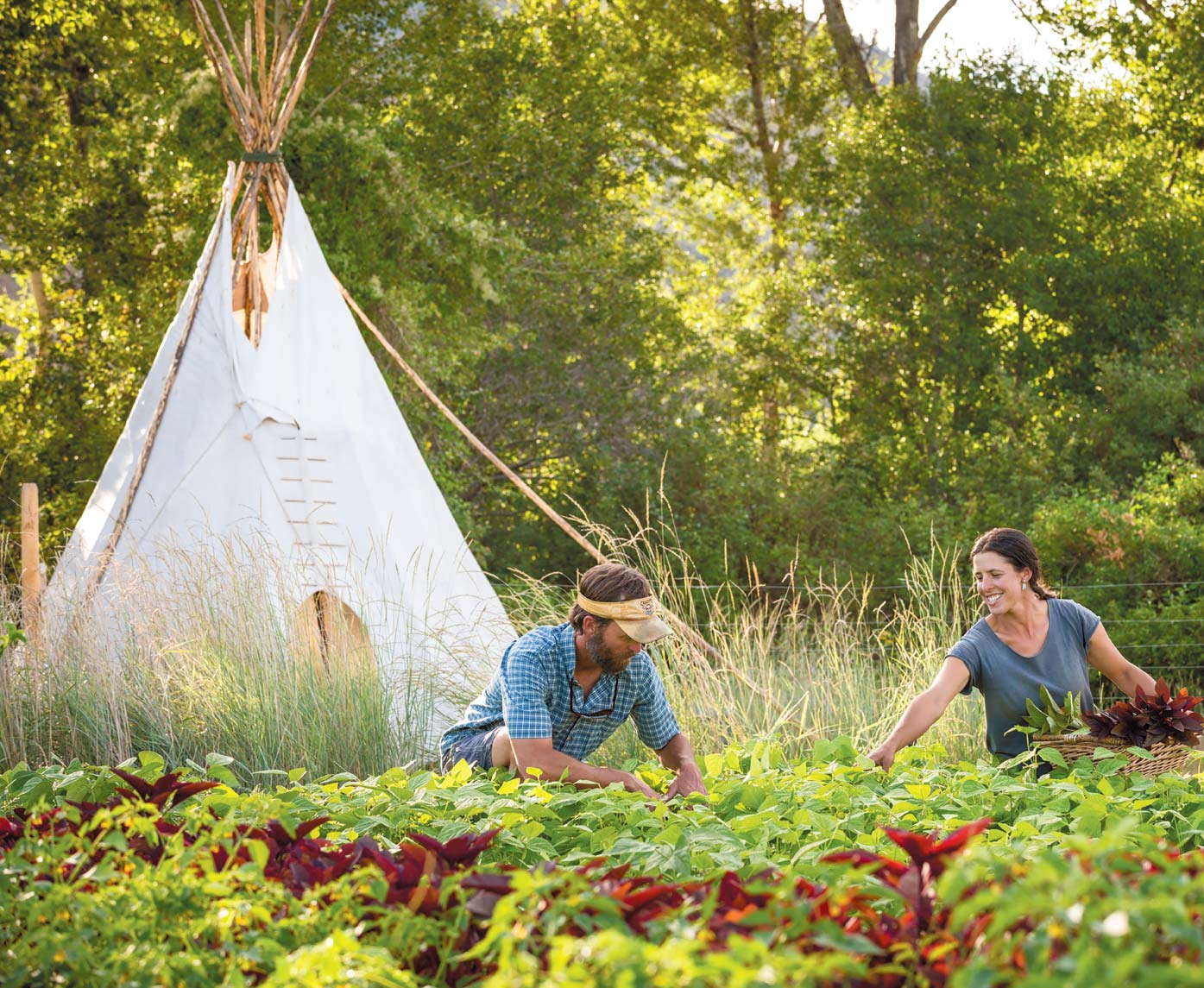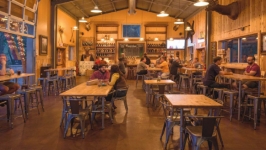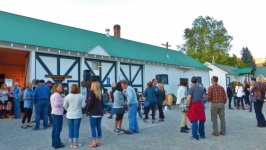Stars (and Land Trust) Align
When Jessica McAleese and Jeremy Shreve moved to Salmon, they knew they had chosen the right place, but weren’t sure how their future would unfold. Since their arrival in 2013, their Swift River Farm has taken shape, grown, moved to a different location and thrived due to the support of not only the community, but a regional land trust willing to bet on the future of two young local farmers.
Shreve, 41, and McAleese, 35, both worked on farms and cultivated their love of growing food before they met. McAleese started a community-supported agriculture (CSA) farm with a friend in Pocatello in 2008. After she and Shreve met, they raised crops together and helped develop a tight-knit community of local members, supporters, family and friends. By the fall of 2012, however, they were forced to uproot their lives and their Pocatello farm. Circumstances had changed for their 95-year-old landlord, so the young couple lost their lease on the land.
Although they were reluctant to leave Pocatello, McAleese and Shreve stored their farm equipment and planted their 20 varieties of garlic seed stock in a friend’s garden. They then hit the road to scout out the Pacific Northwest for a permanent home. McAleese recalls that they “fell in love with lots of places, but kept coming back to Salmon.” There, they found people who valued hard work and good food and who watched out for each other. The town, nestled in a valley at the foot of the Bitterroot Mountains, had been founded on ranching, mining and logging. These roots grew a self-sufficient community able to hang on through good and bad times, isolated by long distances from major metropolitan areas.
Shreve and McAleese saw in the Salmon community a remote area starting to rebuild a local food system that had thrived before commercial agriculture and modern transportation made food appear magically on grocery store shelves. Salmon had a local foods group, a land trust, farmers market and community conservation organization. The couple was also encouraged by the growing number of young people from Salmon moving back home to start small businesses and families. In 2013, they rented a house there and started jobs at a local bakery.
“We left the blinders behind,” McAleese said. “We’re both big believers in putting our passion into action and in being flexible enough to allow the world to unfold around us.” That winter, a local couple saw an opportunity to promote local food in Salmon while helping the farmers. Sherry Elrod and John Treankler leased Shreve and McAleese an acre of former pasture on a bend in the Salmon River for $1 a year. Early 2014 found the couple retrieving their farm equipment and supplies from Pocatello. Friends and family convoyed north with their greenhouse, hoop houses, high and low tunnels, miles of drip irrigation tubing and hoses, hundreds of flats, pots and trays, mountains of tools, stacks of bins, buckets and baskets, fencing, tarps, wheelbarrows, a giant seed collection and a few (dozen) plants they couldn’t leave behind. The last load arrived on the first day of spring.
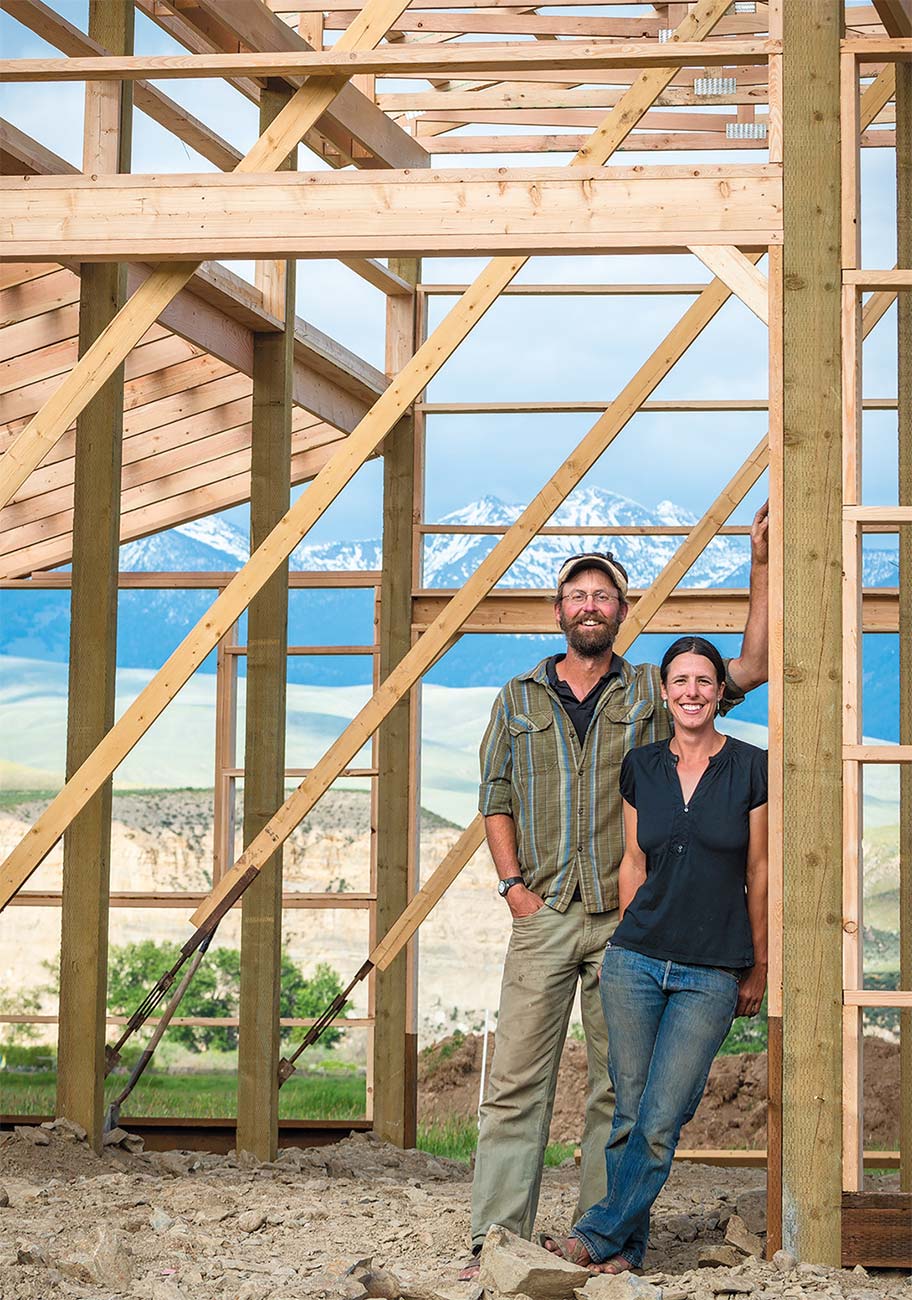
In early April, with snow still covering the peaks of the Continental Divide to the east, Fergie the Tractor revved up and started turning the soil for Swift River Farm’s first growing season. Shreve and McAleese believe they’ve mastered the secret to farming north of the 45th parallel. “It’s not a secret: It’s season extension,” they said. Spring comes early and fall lingers late inside greenhouses and hoop houses protected by an elk-proof fence.
But season extension is labor intensive. On each end of the growing season, they must open their greenhouses in the morning to prevent overheating and close them in late afternoon to protect the tender plants. This is a routine chore if you live on your farm, but if you live eight miles away like Shreve and McAleese do, it’s a twice-daily, time-consuming, fossil-fuel-sucking trek.
Swift River Farm’s first year was packed with harvesting weekly CSA shares, attending the Saturday Lemhi County Farmers Market and filling orders from local river outfitters. A realtor cleared the parking lot in front of her Main Street office each week for a Wednesday afternoon farm stand. At the height of summer, 100 varieties of vegetables, fruits, flowers and culinary and medicinal herbs flourished at the farm and tumbled into the walkways. McAleese and Shreve spent many summer nights in their teepee at the farm. As they listened to the Salmon River slide past, the couple dreamed of farming and living on their own land.
With their first growing season in full swing, the couple looked for a way to fulfill this dream. As first-generation farmers, neither was going to take over a family farm. They knew the odds were against them finding a place they could afford. As McAleese explained, “Small parcels are often priced for residential development. So, like many young farmers, we found ourselves up against a real estate market designed for ranchettes, not agriculture.”
In early spring 2015, Shreve and McAleese found a suitable parcel with an owner who could wait while they hatched a plan to buy it. The couple tested the soil and watched the land over the growing season as they drove to and from their leased land. By fall, they knew it was the right place for them. They made an offer and turned to financing the purchase. McAleese and Shreve started at the USDA’s Farm Service Agency. Their farming experience and detailed financial and production records qualified them for a new farmer land loan at a low 1.5% interest rate. There was just one catch: These loans cover only half of a land purchase and require a second lender to pick up the balance.
At the same time, the Lemhi Regional Land Trust was reviewing investments for their stewardship fund. This fund pays for monitoring and enforcing conservation easements in perpetuity. With a “forever” investment horizon, the land trust focuses on low-risk investments with steady returns. As Kristin Troy, LRLT executive director, listened to the organization’s financial advisor, she worried about the gap between the land trust’s investment strategy and its mission. When she voiced her concerns, the former board chair, a local rancher, agreed. He mused, “We should probably be investing in land.” Ranchers started the LRLT to protect the area’s ranches. Lemhi County is not alone in this. A 2010 Land Trust Alliance survey found that over 60% of their members focus on protecting working ranches and farms.


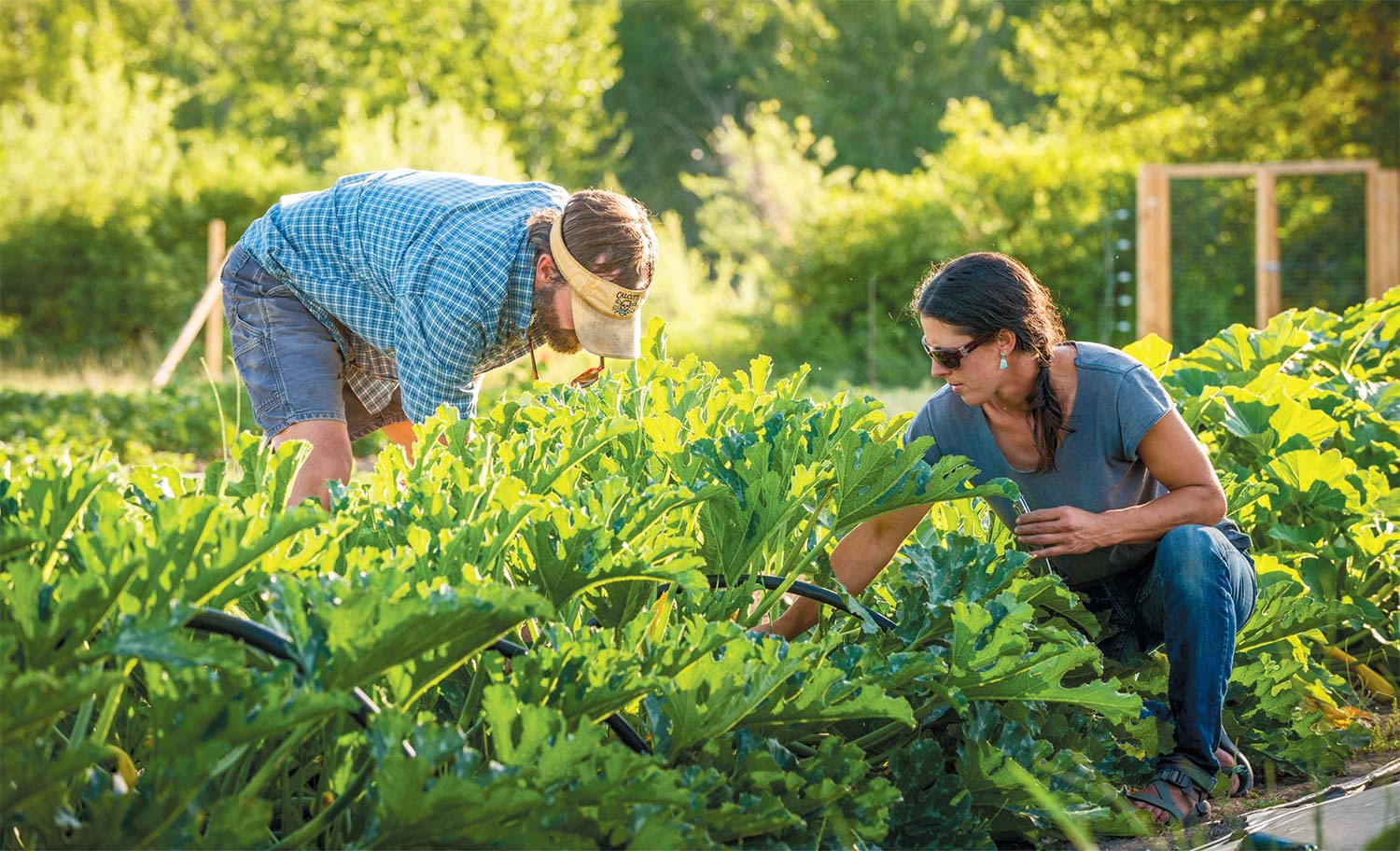
A few days later, Troy picked up one of her last CSA shares of the 2015 season. McAleese pulled her aside and said they were looking for a second lender for their land loan. McAleese asked if Troy had any ideas. She answered, “Funny you would ask.” Troy called the events that cascaded from that conversation on Main Street a “harmonic convergence.”
The details of the LRLT loan fell into place within six weeks. It was a natural fit for the land trust. “We know land,” Troy said. “And we all knew that piece of ground was a slam dunk, as it was collateralized,” Troy said. The FSA program protected the land trust from loss. The loan was a way for LRLT to fulfill its mission, build the local economy and preserve the agricultural land and rural lifestyle of the valley. The attractive interest rate the land trust was able to give Shreve and McAleese helped the young couple promote similar goals.
Wendy Ninteman, western director of the LTA, said in an email, “This is what makes Lemhi Regional a true leader in the western land trust community. Land trusts are good at doing the obvious thing— saving land. But when they go beyond the obvious, and start leveraging their skills for the broader good of their community, that is true success.”
Next, McAleese and Shreve held a traditional barn raising with a 21st century twist. Instead of logging trees and hewing logs, over 200 supporters logged on to Kickstarter and pledged funds to reach, and surpass, the couple’s goal. The crowd-funded barn will give the community a solid connection with the farm—a connection people will see as they head out to an event at the fairgrounds, a day of huckleberry gathering or a rafting pickup at the river takeout north of town.
Shreve and McAleese know they’ve made the right choice, but they’re not sure how they’ll get everything done this summer. In addition to running their farm, they’ll be building the barn, sinking a well, connecting power and building an elk-proof fence. The couple promises they’ll take time off for an end-of-season celebration with members, supporters, family and friends. The first harvest to fill Swift River Farm’s barn will be one brought together by the local community and a land trust willing to take a chance on a novel way of financing young farmers.
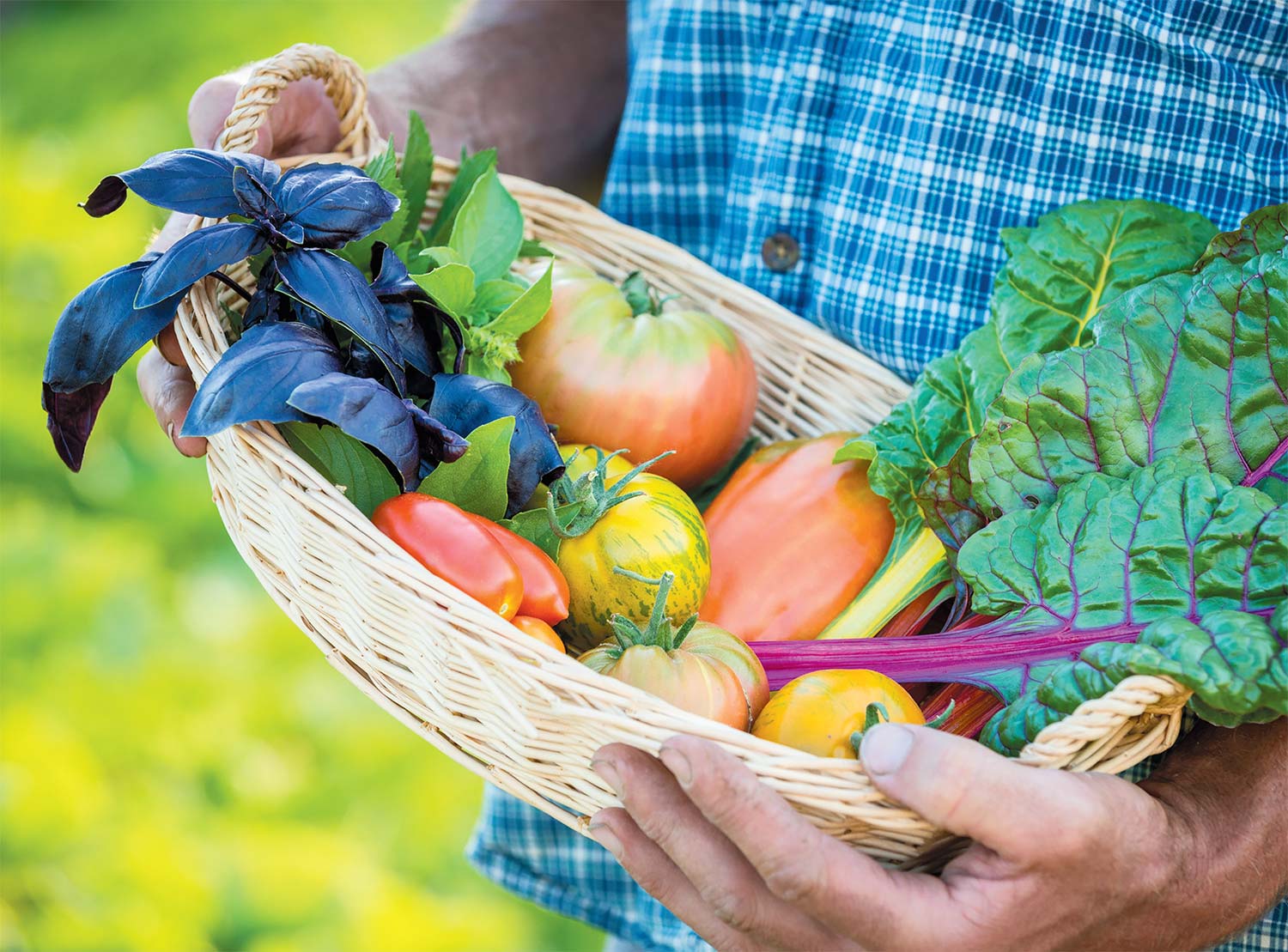
A TASTE OF SALMON, IDAHO
Odd Fellows’ Bakery
510 Main St., Salmon
208.756.1122
Jessica and Craig McCallum grew up in the area and bucked the trend of young people leaving rural Idaho for cities. They came home after college and opened the bakery with its wood-fired oven. Their business partner, long-time chef Ken Korn, creates pastries, special-order desserts and lunch fare. The Lemhi County Humane Society bought the neoclassical revival building in 2009 to house its Rags & Wags Thrift Store, with room left for the bakery. (See the feature Edible Idaho wrote on Odd Fellows’ in the Spring 2013 issue.). Open M–Sa, 7am–5pm. Additional seating in the upstairs loft.
The Junkyard Bistro
405 Main St., Salmon
208.756.2466
“Eat something with a bite,” is The Junkyard Bistro’s motto. co-owner Mary Whalen explained, “I try to tweak every recipe so it’s a fusion of different flavors.” Although the bistro serves eclectic, modern fare such as tapas and rice bowls alongside sandwiches, salads and soups, the owners also preserved a bit of Salmon’s past: a carved wood back bar from the Silver Spur, a watering hole that preceded it in the narrow spot on Main Street. The Junkyard Bistro is open for lunch and dinner seven days a week. Beer (PBR on tap) and wine are available. Eat on the back patio in warm weather.
Bertram’s Brewery
101 S. Andrews St. (Main & S. Andrews), Salmon
208.756.3391
Nick Bertram brews 10 different beers at his namesake brewery, including the award-winning Mount Borah Brown Ale, plus seasonal styles. Tuck into pub food, including bread made from the brewery’s spent grains and baked by Odd Fellows’ Bakery, locally raised, grass-finished burgers, sandwiches, entrees or a soup and salad bar. Bertram’s Brewery is open for lunch and dinner seven days a week. The brewery also serves breakfast on weekends. Other beers, wine and “beertails” (beer cocktails) also available.
The Owl Club
505 Main St., Salmon
208.756.4152
A somewhat divey bar and a Salmon institution. Look for the 20-foot owl out front.
Greyhouse Inn Bed and Breakfast
1115 Hwy. 93 S., Salmon
208.756.3968
Stay in a room in the main house or rent a cabin. Located along the Salmon River outside of town. Raft and ride packages available.
www.greyhouseinn.com


